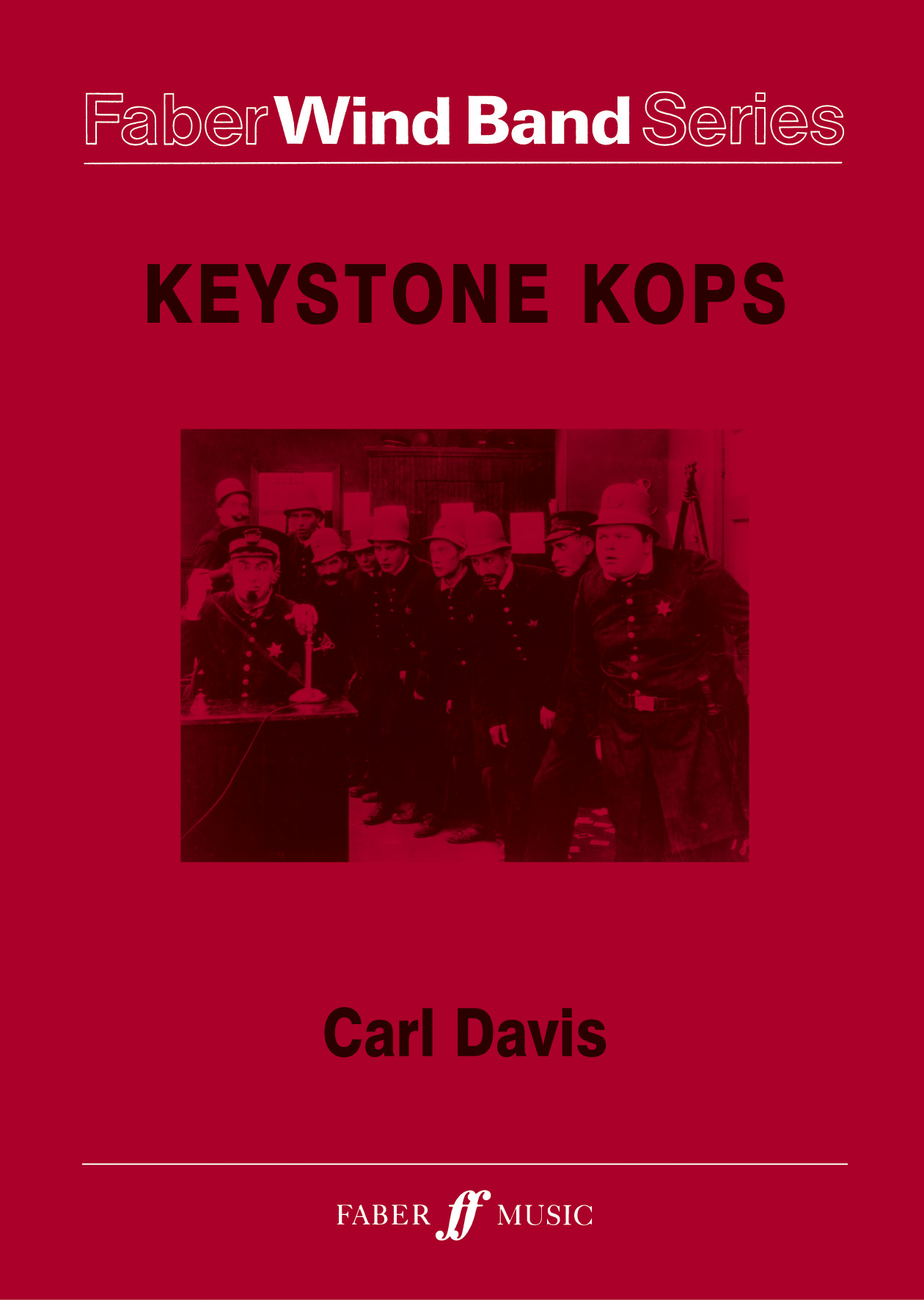Results
-
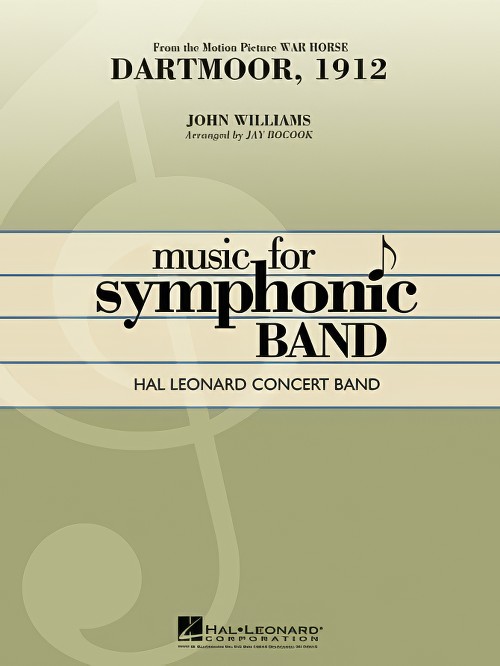 £76.99
£76.99Dartmoor, 1912 (from War Horse) (Concert Band - Score and Parts) - Williams, John - Bocook, Jay
The melodic and harmonic genius of John Williams is dramatically displayed in his powerful, yet sensitive film score from Steven Spielberg's War Horse. This symphonic setting for band exemplifies the character and warmth of the score from soloist passages to sweeping full ensemble themes.
Estimated dispatch 7-14 working days
-
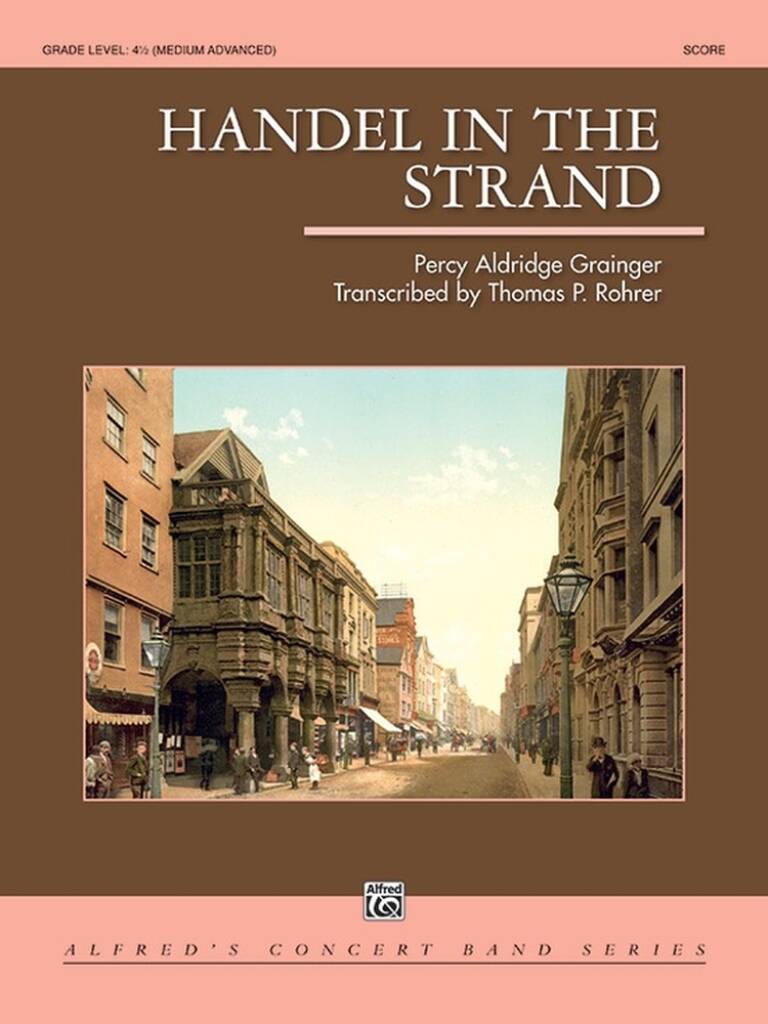 £68.95
£68.95Handel In The Strand - P. Grainger
This delightful Grainger classic was written to depict a jolly old George Friedrich Handel careening down the Strand (the theatre district of London) accompanied by the English popular music of the day. Given the original instrumentation and label as a chamber piece in Grainger's original publication, this transcription is taken directly from Grainger's "four-some" edition of 1912, transposed down a step from G to F major. It is scored to best depict the light (and sometimes percussive) quality of the piano along with the lyrical flow of the strings and the general character of chamber music. Ultimately, the "room music" quality of the original shines through in this skillful transcription while depicting the spirit of the piece in a way that Grainger might have chosen. (3:35)
Estimated dispatch 7-14 working days
-
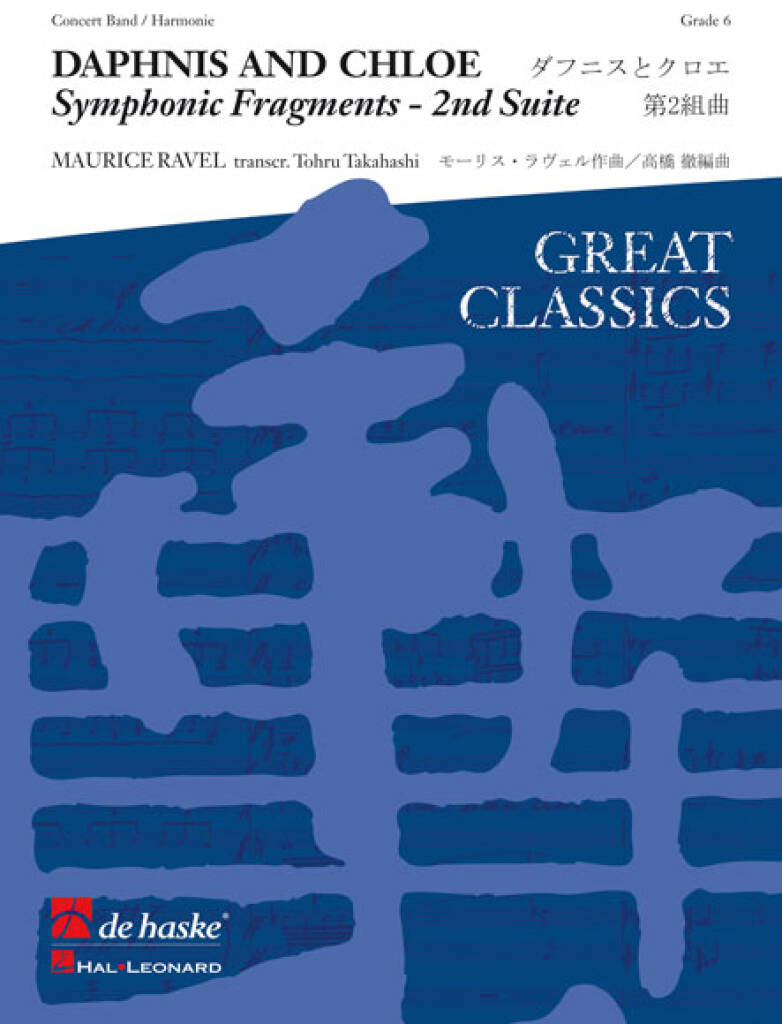 £352.99
£352.99Daphnis and Chloe - Maurice Ravel
Ravel's ballet, Daphnis and Chlo, was commissioned by Sergei Diaghilev and premiered with the Ballets Russes in Paris in 1912. The ballet is now rarely performed, but its Suite No. 2 remains popular. It consists of three movements, Lever du jour, Pantomime and Danse gnrale, that are played without interruption. Tohru Takahashi makes no compromises in his transcription, which calls for at least 60 musicians and an optional mixed chorus!
Estimated dispatch 7-14 working days
-
£55.00
Keystone Kops (Score & Parts) - Carl Davis
The Keystone Kops was a series of silent comedies featuring an incompetent group of policemen. They first appeared in the 1912 film Hoffmeyer's Legacy but it was the 1913 feature The Bangville Police that confirmed their popularity. The Keystone Kops were renowned for making mistakes, particularly with a great deal of energy and activity, and all done with a major lack of coordination. Carl Davis's energetic theme provides a fitting musical portrait of a silverscreen phenomenen.
In stock: Estimated delivery 1-3 days
-
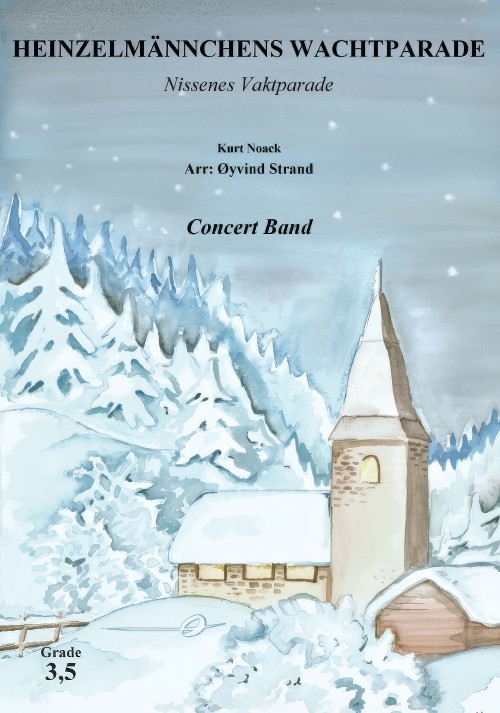 £94.00
£94.00Heinzelmannchens Wachtparade (Concert Band - Score and Parts) - Noack, Kurt - Strand, Oyvind
The story of the Heinzellmannchen (Gnomes) is connected to the German city of Cologne. The gnomes were small creatures living underground but appeared during the night, when the people were asleep, doing all the work that had to be done in the city, so that the citizens of Cologne could be lazy, relaxing the whole day. At last, there was a tailor's wife getting so curious about the gnomes that she scattered dried peas onto the floor so that the gnomes slipped and fell, making a lot of noise. The gnomes got infuriated and disappeared forever and the citizens of Cologne must thereafter do all the work themselves.Kurt Noack (1893-1945) was a German composer, arranger and orchestra leader, working mainly with light music and marches. The characteristic piece Heinzellmannchens Wachtparade (Gnome's parade) from 1912 is his most famous composition, originally written for piano.This arrangement is made a little parodic, filled with joyful interjections, trying to give these little gnomes a bit of character, with pictures from Disney's Santa's workshop in mind.Duration: 7.00
Estimated dispatch 7-14 working days
-
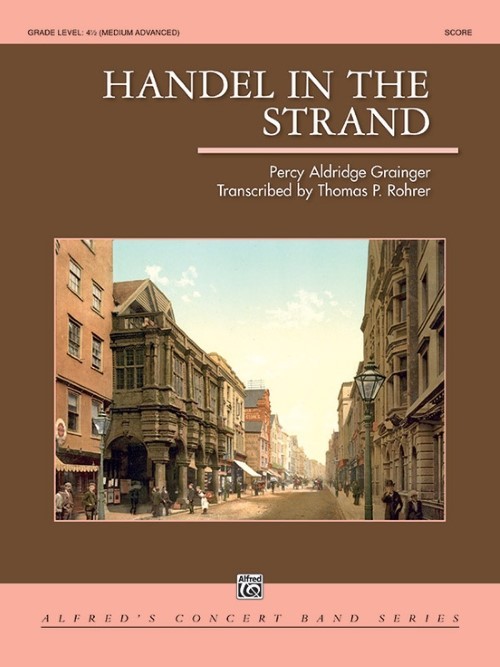 £78.00
£78.00Handel in the Strand (Concert Band - Score and Parts) - Grainger, Percy Aldridge - Rohrer, Thomas P.
This delightful Grainger classic was written to depict a jolly old George Friedrich Handel careening down the Strand (the theatre district of London) accompanied by the English popular music of the day. Given the original instrumentation and label as a chamber piece in Grainger's original publication, this transcription is taken directly from Grainger's "four-some" edition of 1912, transposed down a step from G to F major. It is scored to best depict the light (and sometimes percussive) quality of the piano along with the lyrical flow of the strings and the general character of chamber music. Ultimately, the "room music" quality of the original shines through in this skilful transcription while depicting the spirit of the piece in a way that Grainger might have chosen.Duration: 3:35
Estimated dispatch 7-14 working days
-
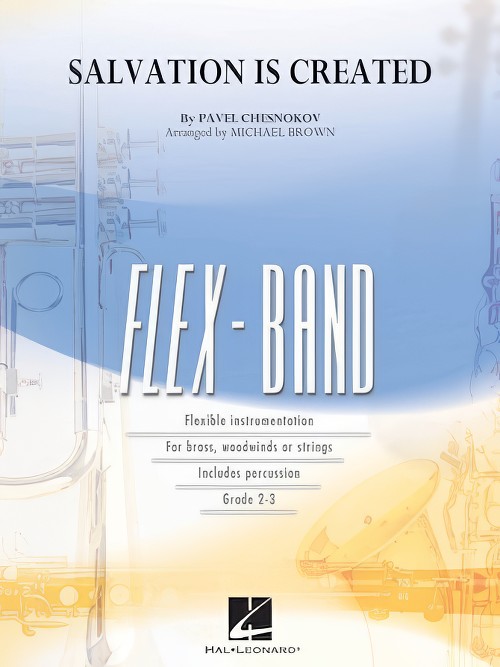 £53.50
£53.50Salvation is Created (Flexible Ensemble - Score and Parts) - Chesnokov, Pavel - Brown, Michael
Composed in 1912, this memorable choral anthem was one of Chesnokov's last sacred works - and one he never heard performed! Michael Brown has skilfully and faithfully adapted this marvellous work for young players and flexible instrumentation.Duration: 2:30
Estimated dispatch 7-14 working days
-
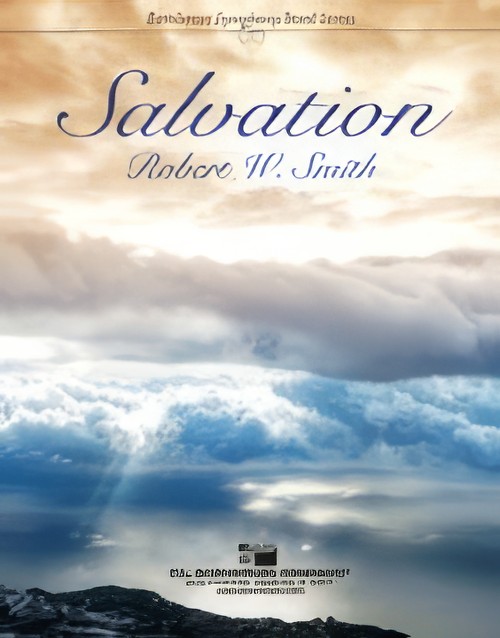 £76.00
£76.00Salvation (Concert Band - Score and Parts) - Smith, Robert W.
The Russian hymn Salvation is Created was composed by Peter Tchesnokov in 1912. Transcribed many times over the century, it has become a standard in the repertoire for choir, orchestra and band. Composer Robert W. Smith has used this timeless melody to create an interpretive statement for the concert band. From the soft and delicate opening phrases to the contrasting full band response, the piece progresses through multiple variations and treatments. The final section of the work presents the hymn in a more standard setting leading to a powerful conclusion. Suitable for contest/festival performance as well as any concert program, this may become a standard in the repertoire. An excellent programming choice.Duration: 4.30
Estimated dispatch 7-14 working days
-
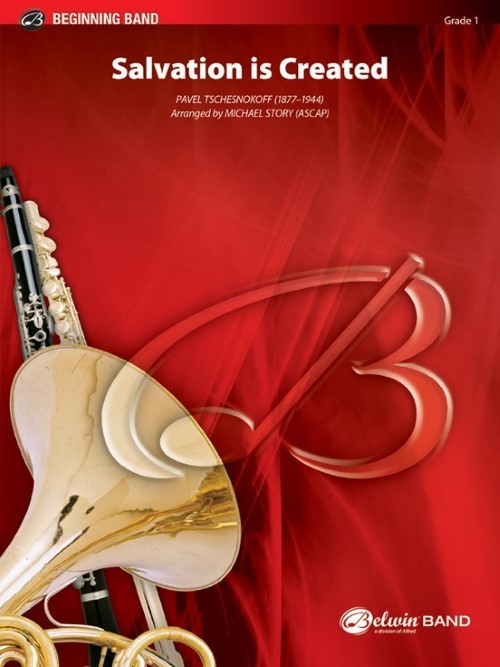 £55.50
£55.50Salvation is Created (Concert Band - Score and Parts) - Tschesnokoff, Pavel - Story, Michael
Salvation Is Created, written in 1912 by Russian composer, conductor, and teacher Pavel Tschesnokoff (1877--1944), was one of the last sacred choral works Tschnesnokoff wrote before being compelled towards secular music by the Soviet Union. One of the most enduring and beautiful chorales ever written, this stirring arrangement is a winner!Duration: 2:00
Estimated dispatch 7-14 working days
-
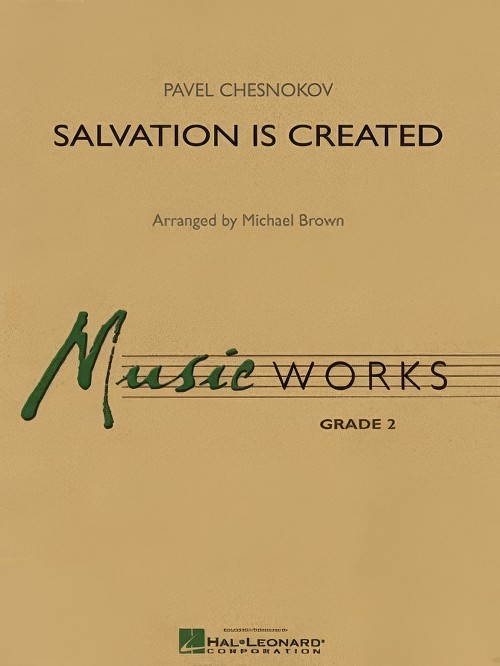 £60.99
£60.99Salvation is Created (Concert Band - Score and Parts) - Chesnokov, Pavel - Brown, Michael
This Russian Orthodox-style choral anthem was composed in 1912. It was one of Chesnokov's last sacred works, and one he never heard performed. Michael Brown has skilfully and faithfully recreated this memorable chorale for young players using reduced instrumentation suitable even for smaller ensembles.Duration: 2:30
Estimated dispatch 7-14 working days

